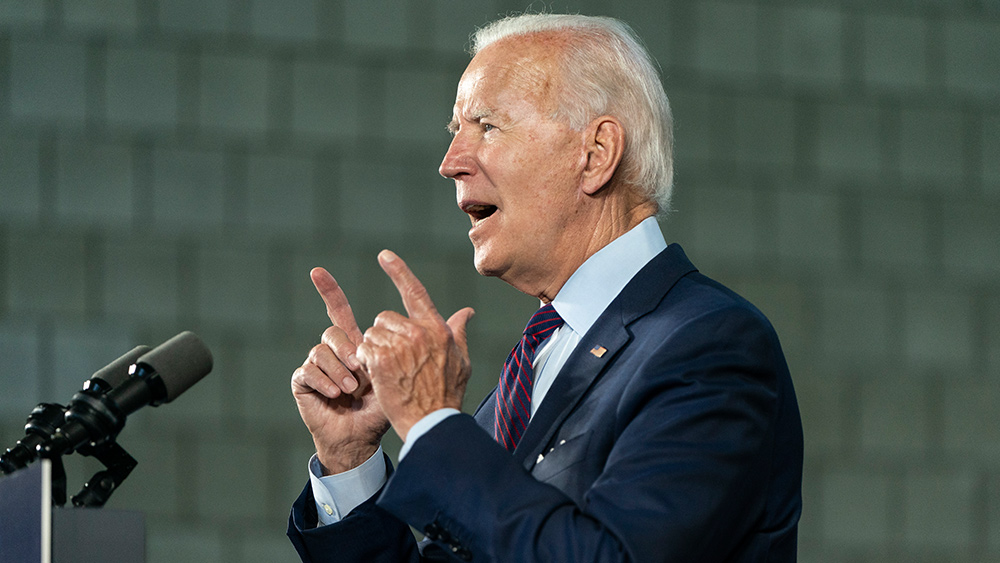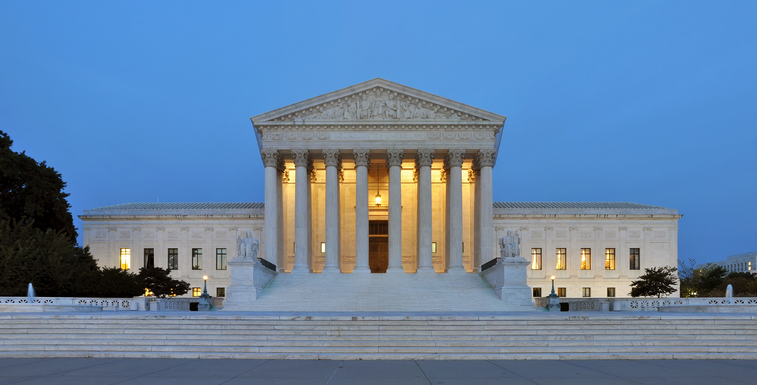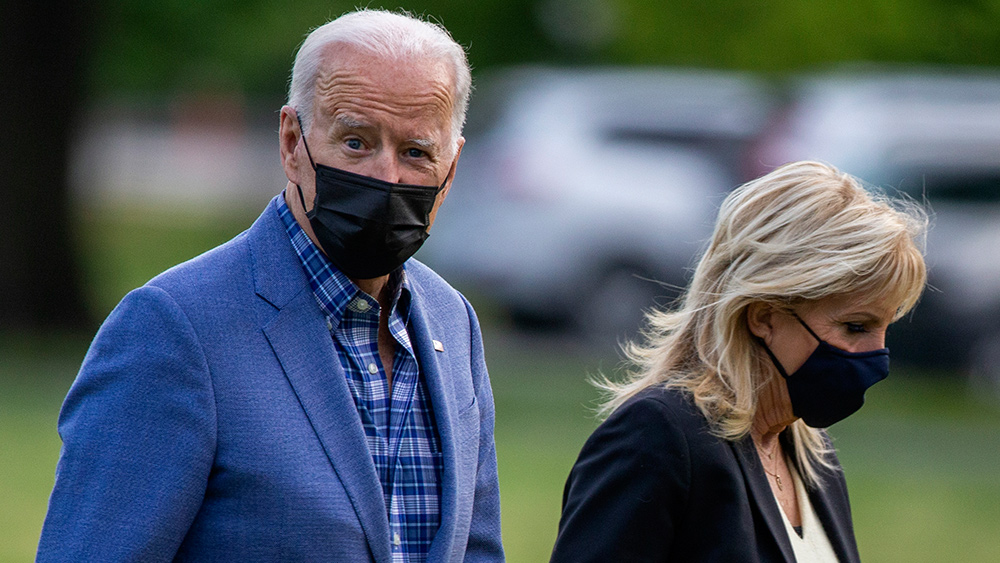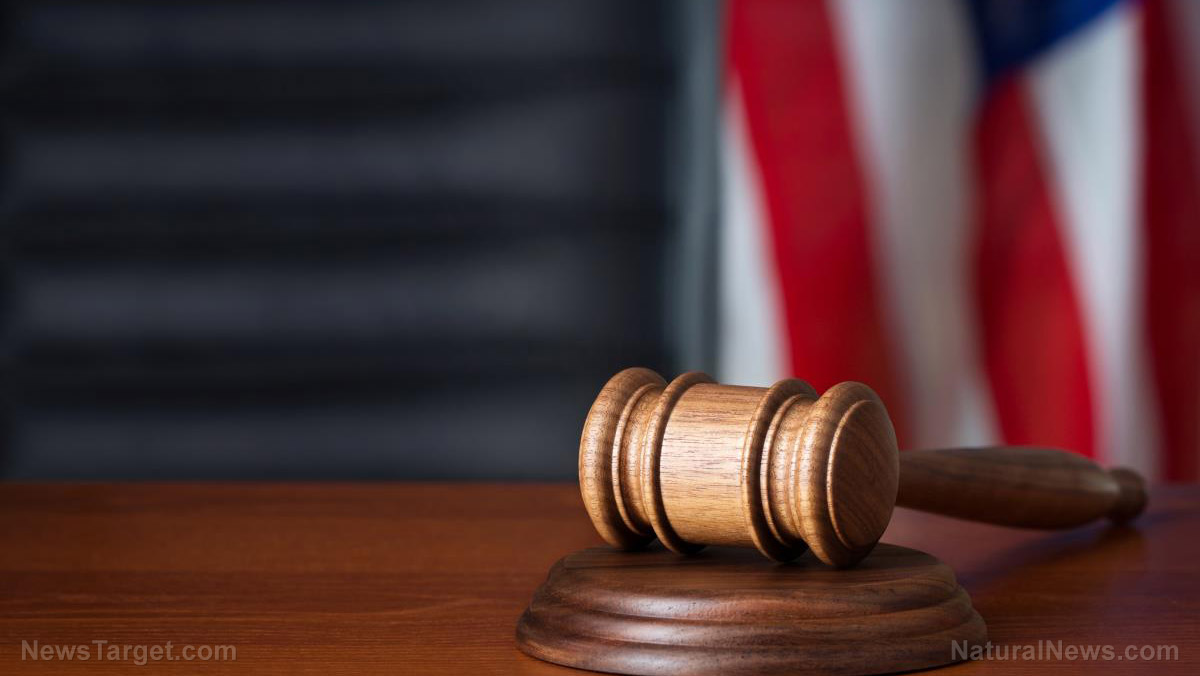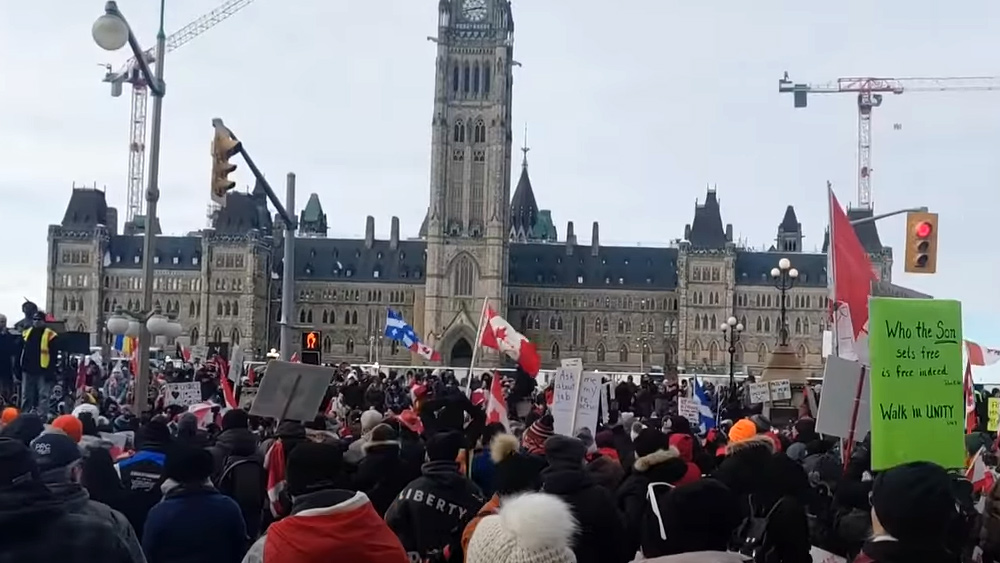Do blacks owe other blacks reparations?
03/01/2021 / By News Editors
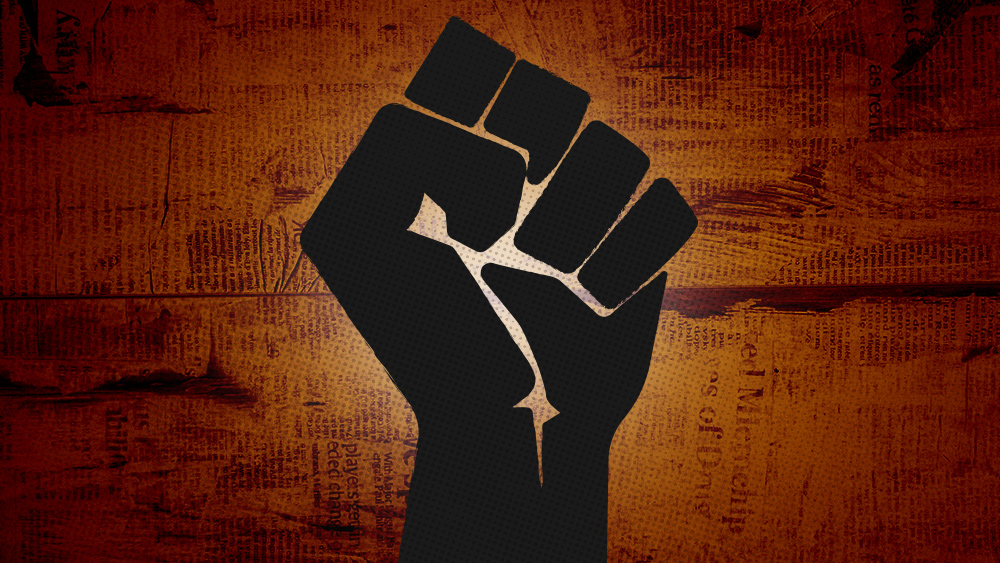
Buried by the flurry of Biden executive orders in the first few weeks, it is likely that many Americans missed the announcement that the Biden administration cleared a path to explore the issues of reparations. It is equally likely that many Americans didn’t have a chance to absorb each new development in this area over the past year as well, given the constant coverage of other events. Among the forgotten or barely-covered pieces was California’s first-of-its-kind statewide study into reparations for black Americans in early October of 2020. The passage of local measures for reparations has already taken place in communities like Evanston, Illinois and Asheville, North Carolina.
(Article by Parker Beauregard republished from TheBlueStateConservative.com)
The Biden administration’s willingness to even discuss the matter should worry all Americans. The California piece is particularly frightening, not least because it essentially codifies the leftist trope of systemic racism at a state level. Indeed, the short bill, which is now a legal mandate, includes passages like: “[T]he nation reckons with the scourge of racial injustice rooted in the legacy of slavery and systemic racism” and “[o]ur painful history of slavery has evolved into structural racism and bias built into and permeating throughout our democratic and economic institutions.” Lastly, the bill “establishes a nine-member task force to inform Californians about slavery and explore ways the state might provide reparations.”
Just half of American adults are able to name the three branches of government and – this is more relevant to the task at hand – half of American adults don’t know when the Civil War was fought (so by extension, when slavery was abolished). More Americans can probably name the current Bachelor or Khloe Kardashian’s latest boyfriend. None of it is surprising, but it never ceases to be depressing.
Despite their limited knowledge of American History and Civics, surveys would be hard pressed to find an American who hasn’t heard about the evils of slavery. Missing from that narrative, though, are many other facts and contextualizing features of American slavery. For example, how many Americans know that just 3-5% of all black African slaves crossing the Atlantic made their way to the North American continent or how millions more African slaves ended up in the Arab/Islamic Middle East than the entire Christian Western Hemisphere? Put another way, only America seems to have gained the attention of woke emancipators despite less than 400,000 African slaves arriving on our shores. Contrast this to almost 5 million ending up in Brazil, 3.5 million ending up in the Caribbean, and over 1 million in the Spanish portion of North America alone. This says nothing of the estimated 17 million black African slaves that were routed east and into Mesopotamia. No one knows this, of course, but all good liberals and leftists do know with doctrinal certainty that America is racist and was founded on white supremacist ideals.
However, whether these issues are explored at local, state, (or, we should soon fear, the national level), all decent Americans should rightfully worry because each new study invites the potential for even further racial division and unrest. Their passages also prompt the entirely legitimately requisite questions of who is responsible for black enslavement in America and therefore who is responsible for paying. As we shall see, the issue is not so black and white.
Never minding the fact that reparations for a universal sin long since abolished is ridiculous on its face, a reading of the 1860 census reveals some fascinating details into the realities of American slavery. Universally known is that some Americans owned slaves in the early United States; almost universally unknown is that free blacks owned slaves as well.
In the lead-up to the Civil War, the free population of the entire United States, which also counted approximately 10% the black population (the other 90% of blacks were enslaved in 15 southern states), stood at just over 27 million. The slave population was just under 4 million.
Of the 25-27 million whites, 1.6% of them individually owned slaves. That number has been cited frequently as being misleading, given that most whites belonged to a greater family unit. And indeed, that is the case; when accounting for families as opposed to individuals, an argument can be made that about 7.4% of all white families in the United States owned slaves. Obviously, all of them were in the South, but it is worth sticking to nationwide totals given that the entire nation today is being held responsible for this sin. It wouldn’t be consistent for Black Lives Matter to say that just 25-30% of southern white families owned slaves while at the same time demanding fully 100% of all white families today repent for past wrongdoings.
Importantly, it needs to be observed that more than just 7.4% of white families were involved in the slave-based economy of the south. Whether that was through transporting slaves, selling slaves, or manufacturing cotton or tobacco products procured through slave labor, the prevalence of slavery dominated the southern economic infrastructure.
If we are going to accept that all whites, including those eking out a living in dying Appalachian coal-mining towns or quadriplegic military veterans, should foot the bill for black millionaire athletes, all for the sins of forefathers long gone (or not even forefathers at all), then it is only fair to assess the sins of all previous slaveowners.
That means if we’re being consistent, blacks owe other blacks reparations, too. Referring to an 1830 census, of the 320,000 or so free blacks, almost 4,000 of them owned a total of 12,760 slaves. On its face, this might seem insignificant given that over 4 million slaves were freed in 1865. However, it makes sense to remain logically consistent with the left, which dictates that all whites ought to be burdened with the onus of paying reparations when most white families owned zero slaves (or came here after slavery was abolished altogether). Every slave matters in this conversation.
Black ownership wasn’t a new phenomenon in the 1800s. Sources dating back to 1650 reveal that one of the first court-won challenges codifying human chattel as property went to a black man. A local court ruled in favor of Anthony Johnson’s ownership of John Casor, declaring that the former owned the latter for life.
This reveals a few unfortunate truths for the left. First, a (presumably) white judge ruled in favor of a black, protecting him with the same judicial proceedings as any other landowner. Second, and completely related, this black man was a landowner. Third, almost as soon as the “1619 Project” kicked off, blacks were right there with the evil white man in owning slaves to earn a profit. I will eagerly wait for Nikole Hannah-Jones to amend her ‘academic’ work.
Many blacks owned just one or a handful, but when able they amassed more than most whites. In the 1820s, a free black by the name of John Caruthers Stanly owned 163 slaves, spread across three plantations. He hired white slave masters to oversee each operation. William Ellison was another free black that, upon his death on the eve of the Civil War, owned 63 slaves and was wealthier than 90% of all South Carolinians. He forgot to tell the other 90% that they had privilege.
When accounting for the regularity of black ownership of slaves, one historian observed that “free black slave owners as the total number of free black heads of families was quite high in several states, namely 43 percent in South Carolina, 40 percent in Louisiana, 26 percent in Mississippi, 25 percent in Alabama and 20 percent in Georgia.” How can we pillory whites today when, nearly identical percentages of southern white and black families owned slaves?
At the peak of black ownership of black slaves, it is estimated that 7.5% of all free blacks engaged in the practice, reaching a high of 12% of the free black population in Virginia. This is not insignificant. While contemporary observers would say that these free blacks were just being complicit in a white-centric world and thus absolved of responsibility, couldn’t that same argument be made that all actors of their time were simply doing what the system allowed for?
To be clear, reparations of any kind are divisive and unwarranted. They are harmful, disingenuous, and entirely unfair, regardless of historical realities. But, if this is the direction we are headed, then is it time for the black community to open up its checkbook…for itself? The historical realities would suggest so.
Read more at: TheBlueStateConservative.com and RaceWar.news.
Submit a correction >>
Tagged Under:
American history, Biden administration, Black Lives Matter, blacks, civil war, executive orders, Joe Biden, real history, reparation, slavery, truth
This article may contain statements that reflect the opinion of the author
RECENT NEWS & ARTICLES
COPYRIGHT © 2017 CIVIL WAR NEWS

